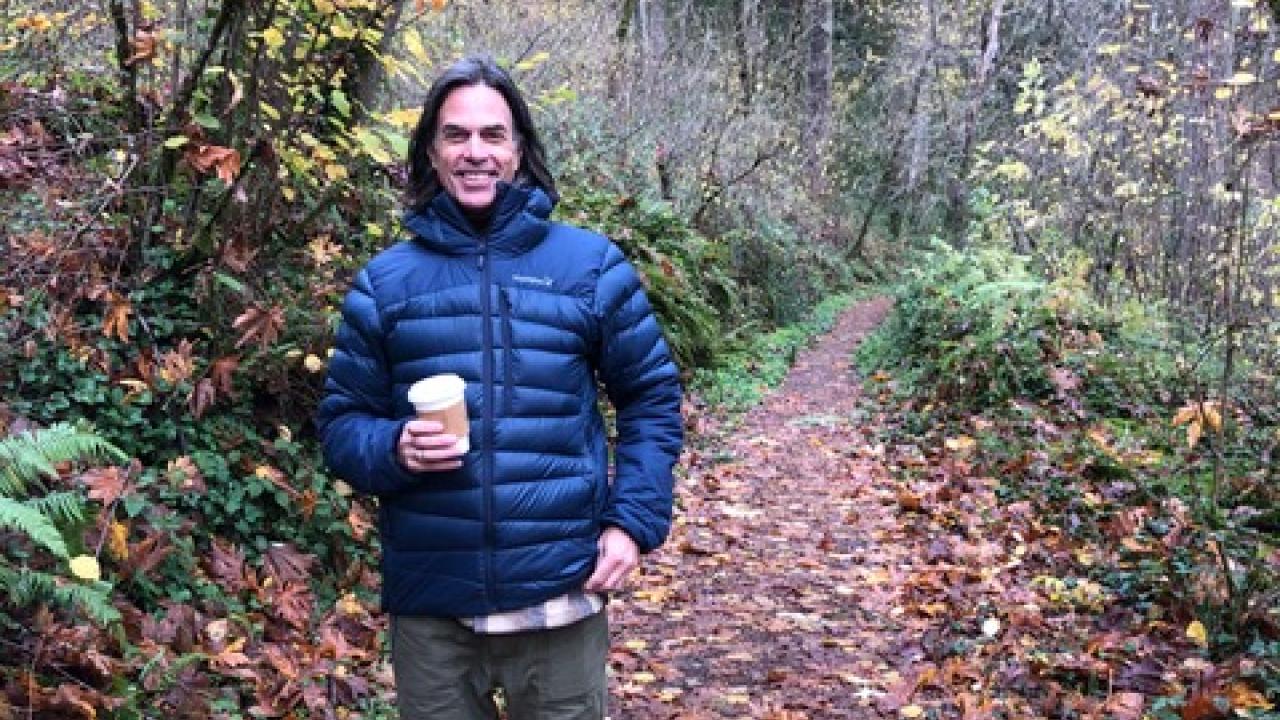
Faculty Spotlight- Dr. Eric Post
Quick Summary
- Dr. Eric Post is a Professor in the Wildlife, Fish and Conservation Biology Department is a member of the Graduate Group in Ecology and the Graduate Program of Environmental Policy and Management.
Dr. Eric Post is a Professor in the Wildlife, Fish and Conservation Biology Department, a member of the Graduate Group in Ecology and the Graduate Program of Environmental Policy and Management. As part of the EPM program, he serves as a faculty advisor to students, provides service on multiple program committees and teaches two core courses, ENV 200A and ENV 297.
What influenced you to pursue a career in academia?
Nothing noble or foresightful, just a simple job offer. When I went into graduate school, I thought I’d like a nice quiet career at some remote field office in the northern woods working for a state or federal agency. But circumstances, rather than anything even close to a plan, led to a post-doc. And near the end of that, somewhat in a state of desperation, I applied for a lot of jobs, a couple of which I actually also wanted. That led to one offer. It was for a tenure-track position at Penn State, and so I suddenly found myself on the academic path feeling utterly unprepared for it. I’m so grateful they took a chance on me and gave me that opportunity. It turns out I love academia.
Can you tell us about your research?
For the most part, my research focuses on how climate change affects plants and the animals that eat them. More specifically, this work involves trying to understand how arctic grazers like caribou and muskoxen, which are really “Ice Age” animals, are responding to rapid warming in a normally cold part of the world. And how the responses of those grazers both derive from and cascade to the plants they eat. But that research has also led to all sorts of meandering and quite frankly fascinating side quests into fundamental questions inside and outside of ecology such as, for instance, what is time and how might climate change influence how living things use it? For an absolute lack of anything remotely resembling an answer to that question, check out my book Time in Ecology (Princeton University Press, and available through most reputable booksellers near you).
What is your favorite thing about working at UC Davis?
There are so many things I love about working here. People are collegial and generally pretty positive. We have turkeys, sheep, and some really sweet cats on campus. There’s always something blooming no matter what season it is. You can easily (and relatively safely) bike to work. But at the top of the list would be the students. At all levels they are incredibly engaging, interested, sincere, inspiring, and above all well prepared! Being able to work in an environment with a constant influx of such open, inquisitive, and hungry minds is an amazing privilege.
What unique perspective or approach do you bring to teaching that sets your classroom experience a part?
Oh, wow, that seems like a question better answered by the students. Unique? That’s hard to say because I’ve only taken one class here, so I don’t really know how most of my colleagues teach (and assume they’re all much better at it than I am). But I guess I can tell you what I hope I bring to the classroom: kindness and compassion. Being a good person, a thoughtful, caring, and genuine human being. And I hope my passion is apparent. Passion for studying the complexity of climate change. Facts and information can be found anywhere. I want to inspire students to take up the challenge of making a difference with climate change and find reward and meaning in doing so.
What do you think stands out about the EPM program?
Everyone involved in this program is earnest, devoted, and dedicated to making the world a better place. Take that as trite if you want to but that’s really how I see it. My colleagues and the students in this program are all a huge source of inspiration. I’ve learned so much being part of this program and I’m grateful for the personal and professional growth I’ve experienced in the process.
In your spare time, what are some of your hobbies?
Embedding myself in the natural world, unplugging, disconnecting and thereby “connecting” with nature. I love wilderness, feel most at ease and in touch with a true state of beneficence toward other living beings in deep nature. But I’m also decent at juggling, so I’ve got that going for me.
